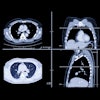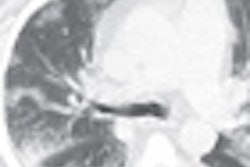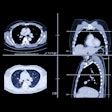Dear AuntMinnie Insider,
Older people benefit from virtual colonoscopy, too, according to a new study from the University of Wisconsin (UW).
Communicating that message to the U.S. government will be a key goal of researchers in the coming year. In its May 12 decision denying national coverage for virtual colonoscopy (also known as CT colonography or CTC) screening, the Centers for Medicare and Medicaid Services (CMS) said it had received insufficient data on the benefits of screening CTC in the Medicare population 65 years and older.
Responding to the challenge, UW researchers examined Medicare-aged participants from a cohort of more than 5,000 individuals screened with CTC at their center. They found a higher rate of extracolonic findings in the older group, but no major differences in adenoma prevalence or other characteristics. Also important, the findings were in line with those of other institutions performing large-scale VC screening. Get the details in this issue's Insider Exclusive.
Here's good news from CMS -- hot off the press: The agency appears to have maintained the physician work relative value units (RVUs) in force for diagnostic CT of the abdomen and pelvis, a decision that bodes well for the economic feasibility of offering CTC as an option, though screening remains a noncovered indication until further notice. Learn more by clicking here.
What went wrong with virtual colonoscopy in 2009, anyway? Plenty, but not everything, as it turns out. A story from last week's 10th International Symposium on Virtual Colonoscopy in Reston, VA, takes an unblinking look at errors -- tactical, political, and research-related -- that befell radiology's promising whole-colon screening exam on the road to approval.
Virtual colonoscopy computer-aided detection (CAD) is, of course, another hot topic these days, and researchers are encouraged by the U.S. Food and Drug Administration's issuance earlier this month of a draft guidance on CAD that could reignite the regulatory approval process for CAD software after years of foot-dragging by the agency.
In other coverage from the International Symposium, another UW team presented CAD results of findings in more than 3,000 screening subjects. CAD performed beautifully, though residual fecal matter continued to fool the software more than other factors. Find out more by clicking here.
Finally, flat polyps are in the news again, with a major new study showing that the National CT Colonography Trial (ACRIN 6664) did a good job of finding flat adenomas. You'll find detailed results from this study, and other exclusive coverage, in your Virtual Colonoscopy Digital Community. We invite you to scroll down for the rest.




















